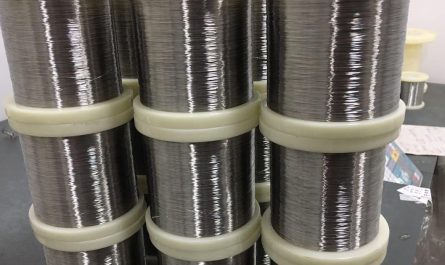Anti Corrosion Coatings: Protecting Metals from Oxidation
Introduction
Corrosion is a naturally occurring process that causes metals to deteriorate over time when exposed to air, water or other environmental conditions. Left unprotected, corrosion can compromise the integrity and structural strength of materials, posing risks and incurring replacement or repair costs. Anti-corrosion coatings provide a protective barrier that shields metal surfaces from corrosion-causing agents. Different coating types are suitable for various applications based on factors like substrate material, exposure environment and required lifespan.
Epoxy Coatings
Epoxy coatings are widely used for general industrial, infrastructure and marine applications due to their durability, adhesion and resistance properties. Offering excellent mechanical strength and chemical stability, epoxy forms a tough film that bonds strongly to metal surfaces. The protective layer isolates the substrate from moisture, oxygen, chemicals and other corrosive elements. Epoxy systems come in solvent-based and 100% solids formulations for different job requirements. Solvent-based epoxies have good application properties but emit VOCs, while 100% solids varieties are more environmentally-friendly.
Polyurethane Coatings
Similar to epoxies, polyurethane coatings provide outstanding adhesion and durability. They form flexible yet abrasion-resistant films suitable for heavy-duty environments involving mechanical wear. Polyurethanes exhibit higher elongation than epoxies, allowing the coating to expand and contract with metal movement without cracking or peeling. Common applications include oil rigs, mining equipment, bridges and road infrastructure subjected to vehicular and pedestrian traffic. Both single-component moisture-cured and two-component polyurethanes are available.
Zinc-Rich Primers
For steel substrates especially in industrial settings, zinc-rich primers are a popular choice as they contain 85% or more metallic zinc by weight. The sacrificial zinc anodes galvanically protect the underlying metal from corrosion even if the topcoat becomes damaged. Zinc-rich primers offer cost-effective protection and are commonly used as part of a coating system involving an epoxy or polyurethane topcoat. Their moisture tolerance also makes them suitable as a primer for below-ground steel structures constantly exposed to damp conditions.
Automotive Coatings
The automotive industry relies on durable coatings to protect vehicle bodies and components from environmental degradation. E-coat or cathodic electrocoat primer provides not only corrosion resistance through its metallic zinc content but also electrical shielding properties. E-coat is applied via an electrochemical process, depositing an imperceptible coating on all interior and underside surfaces. This is followed by an electrodeposition primer and an acrylic or polyurethane topcoat to complete the automotive coating system. Automotive refinish coatings involving 2K urethane or 2K acrylic repair damaged original finishes.
Marine Coatings
The harsh saltwater marine environment demands extremely tough and long-lasting coatings. Epoxy coatings containing advanced polymers are best suited for boat and ship hulls besides other metal components. Multiple coats provide a total DFT (dry film thickness) of 200 microns or more for best results. Specialist antifouling coatings containing biocides further protect underwater metal surfaces from microorganism attachment and slime/algae growth. Shore machinery, offshore rigs and subsea infrastructure also require robust marine-grade coatings for protection. Proper surface preparation and application are critical for long coating life in marine settings.
Thermal Spray Coatings
Metal substrates subject to extreme heat, abrasion or corrosion often receive thermal spray coatings for heavy-duty protection. The process involves spraying molten or semi-molten metal alloys onto prepared surfaces using flame spray, arc spray or plasma spray techniques. This builds up a metallurgically-bonded coating providing barrier protection as well as enhanced properties. Common thermal spray materials include aluminum, zinc, nickel alloys and carbides. Applications range from oil and gas components to industrial chimneys, jet engine parts and more. Thermal spray forms extremely durable coatings exceeding 1mm thickness for critical long-term applications.
Powder Coatings
For coating metal furniture, household appliances, construction products and other items, powder coatings have gained popularity over liquid paints due to their eco-friendly, low-VOC nature. The process involves an electrostatic powder application where the substrate carries a negative charge and the coating powder a positive charge. This allows for efficient deposition and recapture of unused powder for reuse. After application the items go through a curing oven where the powder melts and fuses to form a uniform, high-build finish. Advantages include excellent adhesion, hardness and durability besides a smooth semi-gloss or textured finish in a wide array of colors.
Coatings Selection
Choosing the right coating system requires understanding factors like the metal substrate material, operating environment, expected service life, surface preparation capability, applicable health and safety standards as well as job-specific criteria. Expert advice from coating manufacturers ensures materials are selected that deliver the performance required while meeting installation and regulatory guidelines. Proper application, inspection and maintenance further maximize corrosion protection and return on investment from quality anti-corrosion coatings.




